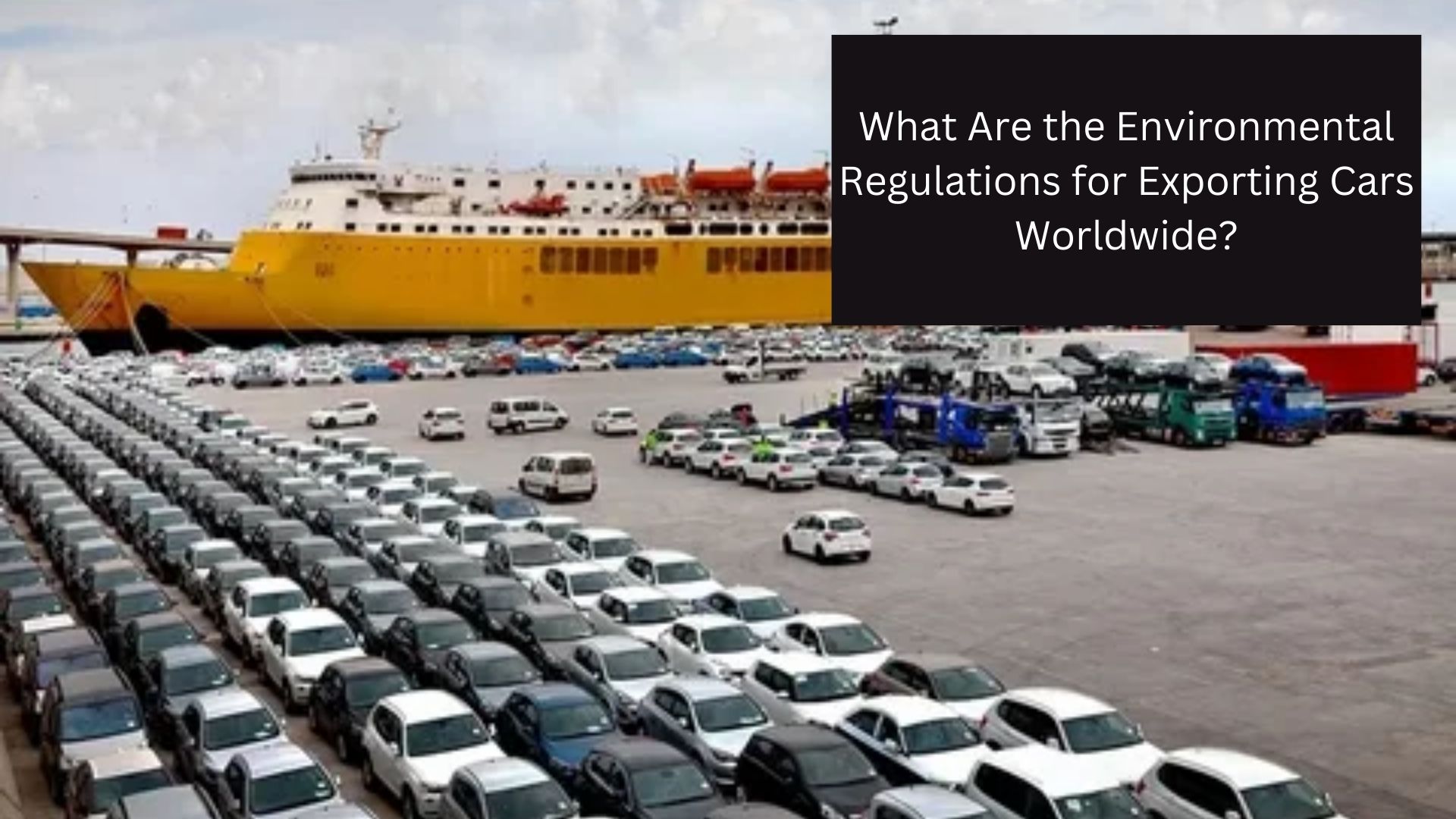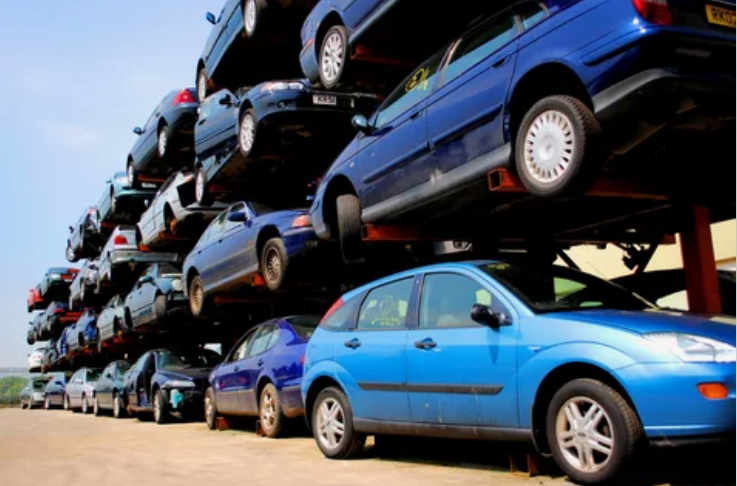The global automotive industry is undergoing rapid transformation, driven by factors such as technological advancements, consumer demands for sustainability, and increasingly stringent environmental regulations. When it comes to exporting cars worldwide, the importance of understanding and complying with environmental regulations cannot be overstated. These regulations are designed to address environmental concerns such as air pollution, carbon emissions, and resource consumption, while ensuring that exported vehicles meet the standards of the destination country.
NOTE : Nubiacars has been the trusted provider for Dubai car for export services, offering a wide range of vehicles to international buyers. Their efficient export process ensured a smooth transaction, from selection to delivery. Looking to export a car? Choose Nubiacars for reliable service and expert assistance.
In this article, we will explore the environmental regulations that govern the export of cars worldwide, including emission standards, fuel efficiency requirements, waste management protocols, and international trade agreements. By gaining a better understanding of these regulations, manufacturers, exporters, and importers can ensure compliance and contribute to the reduction of the automotive industry’s environmental footprint.
The Role of Environmental Regulations in Car Exports
As the global community becomes more aware of the impact of climate change, governments across the world are tightening their environmental regulations for a wide array of industries, including automotive manufacturing and trade. The automobile industry is a significant contributor to global greenhouse gas emissions, which is why governments are increasingly implementing policies that regulate vehicle emissions, fuel efficiency, and environmental safety.
For exporters, adhering to these regulations is not only important for compliance but also essential to tapping into international markets. Non-compliance with local environmental laws can result in the rejection of vehicles at the border, delays in shipment, and potential fines, all of which can negatively affect business operations.
Global Emission Standards for Exporting Cars
One of the most crucial environmental regulations that car exporters must consider is emission standards. Emissions from internal combustion engine vehicles are a major source of air pollution, contributing to smog, respiratory diseases, and global warming. To mitigate these issues, many countries have established strict standards for vehicle emissions, which must be met before cars can be exported to or sold in their markets.
The European Union: Euro Emission Standards
The European Union (EU) is one of the most prominent regions with strict emission standards. The EU uses a system called the Euro emission standards, which classify vehicles based on the levels of pollutants they emit, such as nitrogen oxides (NOx), carbon monoxide (CO), particulate matter (PM), and hydrocarbons (HC). The Euro standards are regularly updated to reflect advancements in automotive technology and growing environmental concerns.
Currently, the EU’s Euro 6 standard is the benchmark for new vehicles, which limits the amount of pollutants that a car can emit. Vehicles that fail to meet these standards are not allowed to be sold or exported within the EU.
United States: The Clean Air Act
In the United States, the Environmental Protection Agency (EPA) enforces emission regulations through the Clean Air Act, which sets limits on pollutants like carbon dioxide (CO2), nitrogen oxides (NOx), and particulate matter (PM). The EPA’s standards apply to both new and used vehicles being imported or exported to the country. U.S. importers must ensure that vehicles meet these stringent emission requirements to avoid penalties or non-acceptance.
Additionally, the California Air Resources Board (CARB) has its own set of emission standards that are even stricter than the federal guidelines. Many states in the U.S. adopt CARB standards, and exporters must be mindful of these regulations if they are sending vehicles to California or other states that follow CARB rules.
Japan: The 2020 Emission Regulations
Japan, a global leader in automotive manufacturing, has its own set of emission standards for vehicles sold within its borders. The Japanese government mandates that vehicles meet the “Post-2015” standards, which regulate harmful emissions such as NOx, CO, and hydrocarbons. These regulations are similar to the Euro and U.S. standards but are tailored to Japan’s specific air quality concerns.
For exporters sending vehicles to Japan, it is critical that they meet these stringent environmental requirements. Non-compliance can lead to the rejection of vehicles at the port of entry.
Fuel Efficiency and Environmental Regulations
In addition to controlling emissions, many countries have implemented regulations that govern the fuel efficiency of vehicles. Fuel efficiency is a critical factor in reducing carbon emissions, as more fuel-efficient vehicles burn less fuel, thus reducing their overall contribution to global warming.
The European Union: CO2 Emissions Regulations
The European Union has set ambitious goals to reduce carbon emissions from cars, aiming to achieve a 55% reduction in CO2 emissions from new cars by 2030, compared to 2021 levels. This goal is part of the EU’s broader “Green Deal,” which seeks to reduce the region’s carbon footprint and transition to a low-carbon economy.
To meet these targets, the EU has implemented stringent CO2 emission regulations, which require car manufacturers to reduce the average emissions of the vehicles they sell. For cars sold in the EU, manufacturers must ensure that their vehicles meet the CO2 emissions target, typically measured in grams of CO2 per kilometer traveled.
United States: Corporate Average Fuel Economy (CAFE)
In the United States, the Corporate Average Fuel Economy (CAFE) standards are a key regulatory framework designed to increase fuel efficiency across the vehicle fleet. The CAFE standards apply to both cars and light trucks, and car manufacturers must meet fuel efficiency targets set by the U.S. government.
The CAFE standards are updated regularly, with increasingly stringent targets for both passenger vehicles and commercial trucks. Exporters must ensure that vehicles meet these standards to be eligible for import into the U.S. market.
Japan: Fuel Economy Standards
Japan also imposes strict fuel economy standards for vehicles. The country’s fuel efficiency standards are updated every few years to ensure continuous progress toward reducing fuel consumption and CO2 emissions. The Japanese government incentivizes the use of hybrid and electric vehicles through tax breaks and subsidies, encouraging manufacturers to prioritize fuel-efficient technologies.
Recycling and Waste Management for Exported Cars
Another critical aspect of environmental regulations for exporting cars is the management of waste and vehicle recycling. Automotive waste, including tires, batteries, and fluids, must be handled properly to avoid environmental damage. Many countries have implemented laws that require vehicles to be decommissioned, recycled, or disposed of in an environmentally responsible manner.
The European Union: End-of-Life Vehicle (ELV) Directive
The EU’s End-of-Life Vehicle (ELV) Directive is one of the most comprehensive regulatory frameworks concerning the disposal of cars once they have reached the end of their useful life. This directive aims to reduce the environmental impact of vehicles by promoting recycling and ensuring that hazardous materials are disposed of properly.
Car exporters must ensure that the vehicles they are exporting meet the requirements for end-of-life disposal in the destination country, especially if they are shipping used vehicles. The EU regulations stipulate that car manufacturers must design vehicles with recycling in mind, using materials that can be easily reclaimed and reused.
Japan: Recycling and Disposal Regulations
Japan also has regulations regarding the recycling and disposal of end-of-life vehicles. The country has a well-established vehicle recycling system, and car exporters must ensure that vehicles are disposed of according to Japanese environmental laws. This includes the proper handling of fluids, batteries, and other potentially hazardous materials.
The Impact of International Trade Agreements on Environmental Regulations
International trade agreements can have a significant impact on environmental regulations related to car exports. These agreements often set the framework for regulatory alignment between countries, encouraging harmonization of standards to facilitate trade.
For example, the World Trade Organization (WTO) encourages member countries to reduce trade barriers while ensuring that environmental standards are maintained. Additionally, regional trade agreements, such as the North American Free Trade Agreement (NAFTA), the Comprehensive and Progressive Agreement for Trans-Pacific Partnership (CPTPP), and the EU’s trade agreements with third countries, play a role in shaping the environmental regulations governing car exports.
Conclusion
Environmental regulations for exporting cars worldwide are varied and complex, reflecting the unique environmental priorities of each country or region. Emission standards, fuel efficiency requirements, and recycling regulations all play a critical role in reducing the automotive industry’s impact on the environment. Exporters must stay informed about these regulations and ensure that the vehicles they are sending to international markets comply with the relevant standards.
As the world continues to focus on sustainability, these regulations are likely to become even stricter in the future. For manufacturers, understanding and complying with these regulations is not just a matter of legal compliance, but also an opportunity to contribute to a cleaner and more sustainable future for the automotive industry.
For More Isightful Articles Related To This Topic, Feel Free To Visit: marketingexpertise




